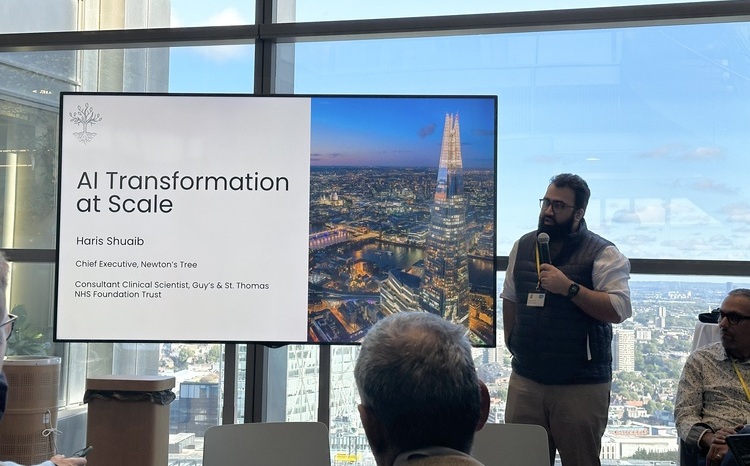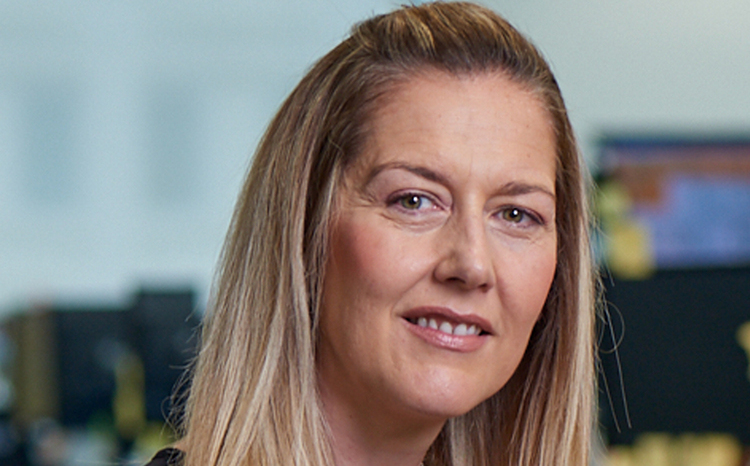NHS clinical scientist warns of AI ‘deployment blockage’
- 16 September 2024

- NHS consultant clinical scientist, Haris Shuaib said there is an AI "deployment blockage" in healthcare
- He added that "we must invest in people" for AI to be safely adopted in the NHS
- Shuaib was speaking at the Digital Health Networks Exchange event, which took place in London on 12 September 2024
A “deployment blockage” is preventing AI from being adopted at scale in the NHS, according to Haris Shuaib, consultant clinical scientist at Guy’s and St Thomas’ NHS Foundation Trust.
Speaking at the Digital Health Networks Exchange event, in London on 12 September 2024, Shuaib, who is also chief executive of AI startup Newton’s Tree, said that although some stages of AI deployment in the NHS are working, they are not enough to implement the technology.
He added that “no one is fixing” the problem.
In the keynote session, ‘AI transformation at scale’, Shuaib said that although AI has “massively grown” in healthcare, “we have a market failure on our hands” due to lack of evidence on the impact of AI on patient outcomes, high transaction costs, institutional bottlenecks and coordination problems.
He added that difficulties in locally evaluating AI are preventing its routine clinical deployment and called for more investment in people to help AI be safely adopted in the NHS.
“If we don’t invest in people, they either won’t use the technology, or will use it dangerously,” Shuaib argued.
In his keynote, Shuaib urged NHS trusts not to write an AI strategy without having first used and experienced the technology.
He presented an “AI transformation playbook”, which outlined the four key stages trusts must go through to transform into an AI-driven organisation.
Firstly, he said that trusts should execute AI pilot projects to gain momentum.
These projects should show traction within three months, be technically feasible, and have a clearly defined measurable objective that creates business value and aligns with strategic priorities, he added.
Next, he said that organisations should build in-house AI teams, which are capable of executing a sequence of cross-directorate projects.
The third stage he outlined is providing broad AI training for staff before finally developing an AI strategy.
He added that the strategy should include collaborations with NHS, academia and industry whilst supporting the trust and NHS strategy, and be aligned with the “virtuous circle of AI”, which creates a feedback loop in which the product continuously improves with use.
Shuaib also spoke of his delight at Newtons’ Trees’ strategic partnership with radiology technology firm Hexarad, announced in September 2024, which aims to transform how NHS radiology departments access technology.
Lord Ara Darzi’s independent investigation into the state of the NHS in England, published on 12 September 2024, said that the health service is “on the precipice of an AI revolution that could transform care for patients”.
“With its deep and broad datasets, and the global AI hub that has emerged in the UK, the NHS could be at the forefront of this revolution with NHS patients the first to see the benefits,” Lord Darzi said in the review.
Meanwhile, a report by The Health Foundation, published in June 2024, raised concerns about a lack of concrete strategy for the adoption of AI in the NHS and called for policymakers and healthcare leaders to prioritise an “AI roadmap”.




